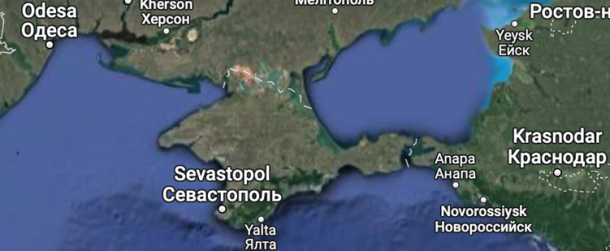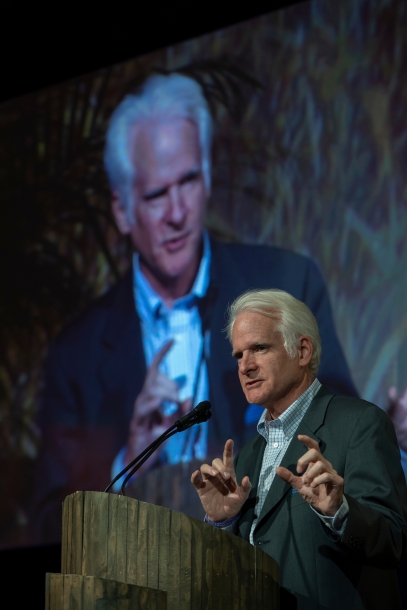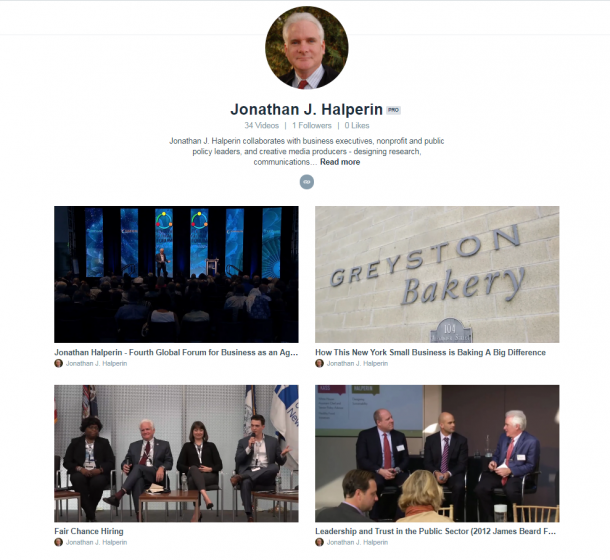You are here
Connections in a Fractured World: Vivek Murthy, Crimea, and Gaza
In a world that seems increasingly fractured, what connects us – as people, as teams and as communities? How well we understand the complexity of connection may hold the key to unlocking success.
For young kids at Mundo Verde Bilingual Public Charter School, a connection to the earth and to changing things for the better fosters a sense of connection, even as 4th graders. We worked closely with the CBS NEWS crew that produced this piece about this long-term client that was broadcast 240 times in 40 states in late October.
Hope for a better future, whether via individual opportunity or systems change, can also meet our species-level need to engage with others. Social science research makes clear that creating opportunities for other people is a twofer; the creator and the beneficiary both win. We worked for years with New York State’s first registered benefit corporation, Greyston Bakery. Dion Drew tells the story of Open-Hiring better than I can. (And a little bit of sugar helps too!)
From a bakery in Yonkers, NY, to a climate conference in Europe working to solve a common problem also enables people to live the experience of the whole being more than the sum of the parts. See the short film we executive produced.
Yet, despite years of successful collaboration between Israeli Jews and Palestinian Arabs (through organizations like Seeds of Peace, New Israel Fund, The Jerusalem Youth Chorus and others), the Arab-Israeli conflict has bound them together in mortal combat. As David Shipler writes, “The two peoples are imprisoned by history”.
Root cause analysis of this seemingly intractable conflict is eerily similar in two respects to the war in Ukraine: property and religion. Jerusalem is claimed as the homeland by Jews, Christians, and Arabs. The prophet Mohammed is thought to have arrived there in the 3rd century C.E. Jesus is believed to have been a preacher or Rabbi in roughly 30 C.E. King David and King Solomon are thought to have ruled Palestine in roughly 1000 B.C.E. Sharing, or the inability to share, is yet another form of connection.

Also bound together by shared borders and history, the war that Russia initiated in Ukraine can be traced back to 988 C.E. when Grand Prince Volodymyr (in what is now Kyiv) embraced the Eastern Orthodox branch of Christianity. In 1054 The Great Schism then solidified the split between the Church of Rome (Roman Catholicism) and the Church of Constantinople (Eastern Orthodox). From Tsarist times, the ‘gathering’ of all the regions embracing Eastern Orthodoxy (and eventually the Russian Orthodox Church) has been a spiritual quest for Russian leaders. And since even before the creation of the USSR, Russian leaders have been on an almost equally spiritual quest for a warm water port. Think Crimea. Think Jerusalem.

Enter Vivek Murthy. Born in Yorkshire, England, of Indian descent, who released in May of this year, “The Surgeon General’s Advisory on the Healing Effects of Social Connection and Community.” The essence of the warning is quite clear: “(s)ocial disconnection puts us at increased risk for depression, anxiety and suicide, as well as heightening our risk for stress-related physical ailments like heart disease, stroke and dementia.”
And a month later, his office released "U.S. Surgeon General Issues Advisory on Social Media and Youth Mental Health.” It will shock no one that “(f)requent social media use may be associated with distinct changes in the developing brain in the amygdala (important for emotional learning and behavior) and the prefrontal cortex (important for impulse control, emotional regulation, and moderating social behavior), and could increase sensitivity to social rewards and punishments.” The promise that Facebook dangles in front of us to “give people the power to build community and bring the world closer together” may be no more than a hallucination of an oasis of peace appearing on the horizon in Sinai. Or could it be more?
Connections need to be managed. This is why counselors advise that there are three players in every partnership between two people: you, me, and the relationship itself. Intent and purpose are essential for successful connection. Misperceptions and competing narratives will lead to unhealthy connections – more traps than links. Whether you are managing a personal relationship, building a brand and protecting a company’s reputation, committed to better understanding the thinking and behavior of key stakeholders, or wrestling with why collaboration across departments often don’t work harmoniously; in all cases how well or poorly we manage our connections will determine whether they buoy or burden us.

